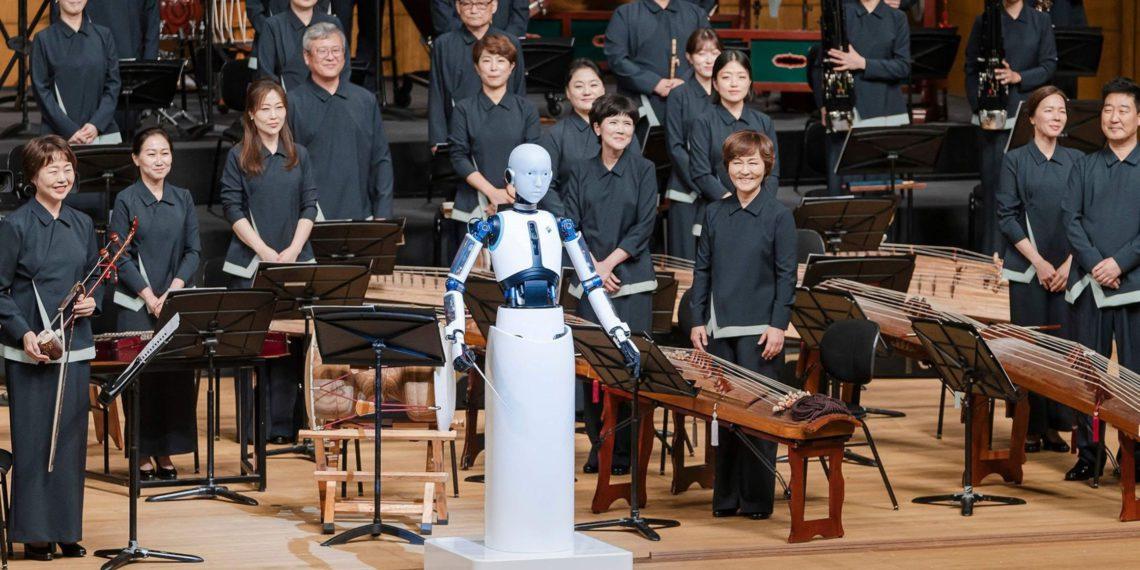An android named EveR 6 assumed the role of conductor for South Korea’s national orchestra, marking the first-ever occurrence of its kind in the country. Developed by the Korea Institute of Industrial Technology, the robot conductor made its debut on Friday at the National Theater of Korea in Seoul.
The android conductor, adorned with a human-like face, bowed to the audience before commencing its performance, skillfully orchestrating the live show by waving its arms to control the tempo.
Alongside chief conductor Choi Soo-yeoul, the two-armed humanoid robot’s detailed movements conducted the event. Although EveR 6’s critical limitation is its inability to hear, the experiment fostered a sense of connection. It demonstrated the potential for robots and humans to coexist and complement each other rather than being replaced. During the performance on June 30th, the robot conductor successfully led three out of the five tracks.
“The movements executed by a conductor are intricately nuanced,” remarked Choi Soo-yeoul. “The robot surpassed my expectations by flawlessly executing intricate movements with remarkable precision,” he added.
Choi further emphasized that the robot possesses one notable limitation—it cannot listen.
Lee Dong-wook, a principal researcher at the institute, emphasized the increasing presence of artificial intelligence (AI) and robot technology in our lives, envisioning a future where robots coexist with humans in various domains.
An enthusiastic performance attendee, Lee Young-ju, keenly interested in Korean music, shared his perspective on the robot conductor’s abilities. While acknowledging the robot’s flawless rhythmic control, Lee emphasized the absence of “breath” — the capacity to keep the orchestra in a state of collective and instantaneous engagement, which they deemed crucial for a successful performance.
“It seemed there was room for improvement for the robot to fulfill its role,” expressed Lee, highlighting the need for further enhancements in its capabilities.
Following the robot-led orchestra performance, the android developer expressed the intention behind this endeavor. The Korea Institute of Industrial Technology aimed to explore the potential of robots in assuming roles traditionally reserved for humans while also fostering a deeper understanding of human-robot coexistence.
According to the robot’s developer, their team has commenced using generative AI technology to acquire knowledge from human motion data and create behaviors suitable for conversations or conducting, showcasing their commitment to further advancing the robot’s capabilities in the future.







